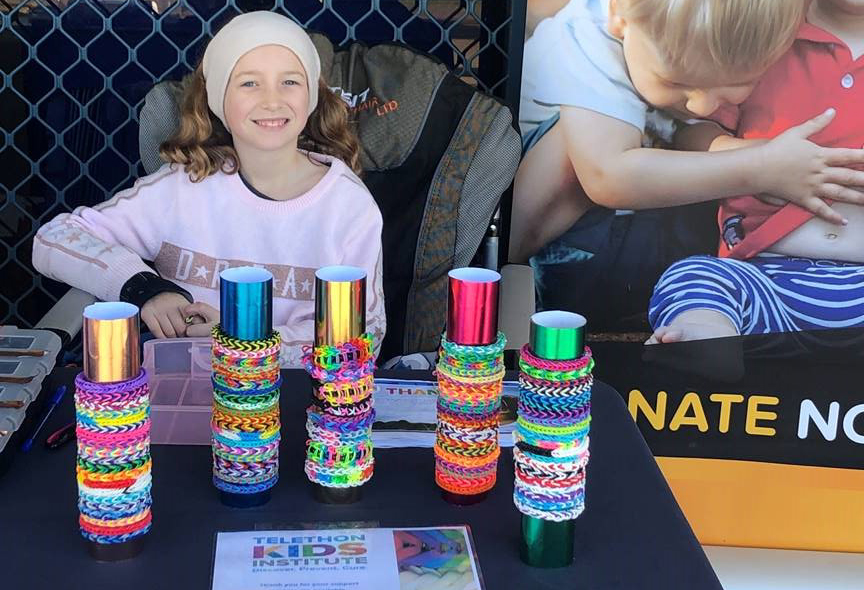Search
Showing results for "Au"

News & Events
Some heroes wear capes. Some heroes wear lab coats. And some heroes wear school uniforms, just like you!Ten-year-old Isabelle decided to make and sell loom band bracelets to raise money for The Kids Research Institute Australia.

Get some key information about some of the most popular questions that people are asking about the Discovery Centre.
We’ve heard from families that trustworthy information about preterm-associated lung disease is difficult to find. In response, we’ve created resources to empower families with the knowledge they need to manage these challenges.
Research
BronchiolitisBronchiolitis is a respiratory infection, usually occurring in babies under six months of age. It causes them to wheeze and can lead to pneumonia. Researchers are focusing on vaccines against the virus which commonly causes it.
Research
Does gastrostomy improve the lives of children with severe disability and their families?Approximately 13,000 children in Australia live with moderate to severe intellectual disability.
Research
Measuring how a disease outbreak could spread in WANick Golding BSc DPhil Honorary Research Fellow Nick.Golding@thekids.org.au Honorary Research Fellow Professor Nick Golding is the UWA Chair in
Research
Efficacy, Immunogenicity, and Safety Study of Clostridium difficile Toxoid Vaccine in Subjects at Risk for C. difficile InfectionJennifer Peter Kent Richmond RN MBBS MRCP(UK) FRACP Clinical Research Manager Head, Vaccine Trials Group Jennifer.Kent@thekids.org.au Clinical
Research
A Phase II Randomized, Controlled, Observer-Blinded Study, Conducted to Describe the Immunogenicity, Safety, and Tolerability of a Neisseria Meningitidis Serogroup B Bivalent Recombinant Lipoprotein 2086 Vaccine When Administered to Healthy ToddlersJennifer Peter Kent Richmond RN MBBS MRCP(UK) FRACP Clinical Research Manager Head, Vaccine Trials Group Jennifer.Kent@thekids.org.au Clinical
Research
Spatial epidemiology of tuberculosisKefyalew Alene BSc, MPH, PhD Head, Geospatial and Tuberculosis 0404705064 Kefyalew.alene@thekids.org.au Honorary Research Fellow Dr Kefyalew Alene
Research
The END RHD CRE: Developing an end game for rheumatic heart disease in AustraliaThe END RHD CRE will undertake a number of projects across several disciplines of research including epidemiology, biomedical sciences; implementation and translation; and understanding the RHD community with a special focus on documenting the experiences of those living with the disease.
